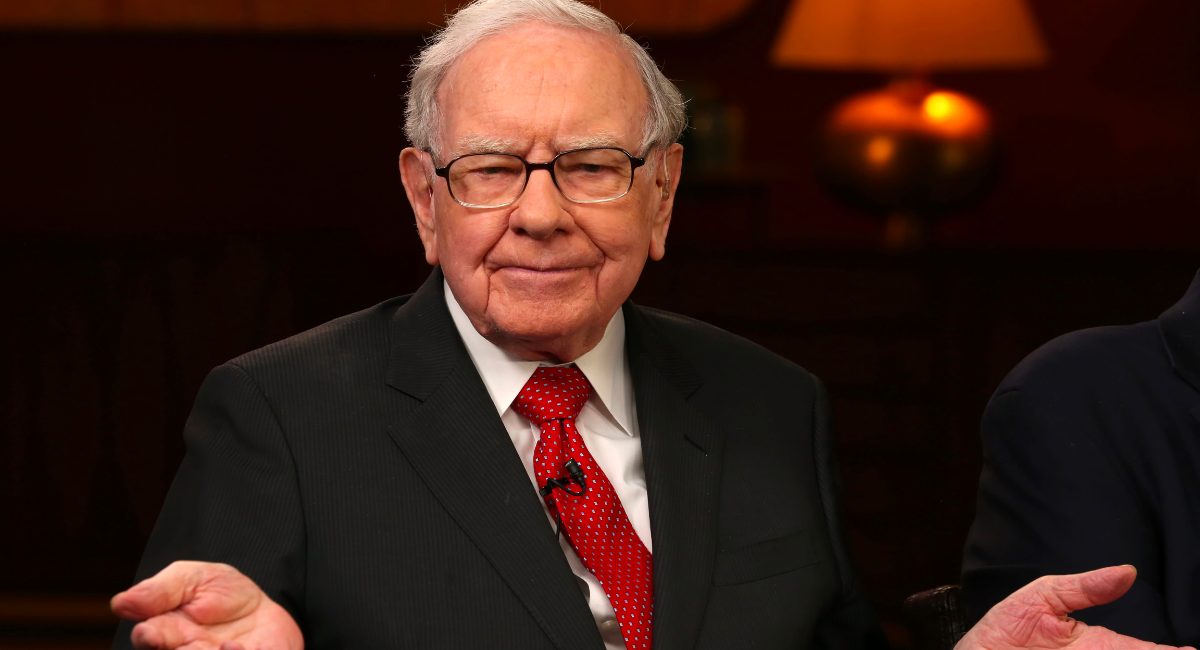Business
Google to Allow NFT Game Ads with New Policy Update Starting September 15

In a significant move, Google has announced a major update to its advertising policy, which will allow advertisements for blockchain-based nonfungible token (NFT) games. This new policy change is set to take effect from September 15, 2023. However, there is a catch: these ads must not promote gambling or gambling services. In this article, we’ll delve into the specifics of Google’s updated policy and what it means for the world of NFT gaming.
The New Criteria
Google’s blog post outlines specific criteria that NFT games must meet in order to run advertisements on the platform. According to the announcement, ads will be permitted for NFT games that involve the following:
- In-Game Items: These games should allow players to purchase in-game items, such as virtual apparel for characters, weaponry, or armor with enhanced stats. These items should be intended to enhance a player’s experience or aid in advancing within the game.
What’s Still Prohibited
While Google is opening the door to NFT game advertisements, it’s important to note that the company remains vigilant about certain aspects of NFT gaming. The following activities will continue to be prohibited under Google’s policy:
- Wagering and Staking: Games that permit players to wager or stake NFTs against other players or for rewards, which can include cryptocurrencies and other nonfungible tokens, will still be banned from advertising on the platform.
- NFT Casino Games: Any NFT-based casino games and social betting paradigms that enable players to wager for real-world prizes, including NFTs, cash, or cryptocurrencies, will also be strictly prohibited.
Also Read: Coinbase Increases Debt Repurchase Offer by $30M
Certification for Gambling-Related Content
For developers and publishers looking to run ads that promote gambling-related content integrating NFTs, Google has set a prerequisite. They must adhere to the Gambling and games policy and obtain the requisite Google Ads certification. This additional step underscores Google’s commitment to ensuring that NFT advertising remains responsible and compliant with relevant regulations.
Conclusion
Google’s decision to permit advertisements for NFT games marks a significant milestone for the burgeoning NFT gaming industry. This move is likely to boost visibility and engagement for NFT game developers and provide them with a valuable marketing channel. However, Google’s continued focus on responsible advertising and the prohibition of gambling-related content involving NFTs reflects the company’s dedication to maintaining a safe and ethical advertising environment.
As of September 15, NFT game developers who meet the specified criteria can look forward to reaching a wider audience through Google Ads. This development reinforces the growing acceptance and integration of NFTs into various aspects of the digital landscape, while also emphasizing the importance of adhering to responsible advertising practices in this evolving space.
Business
UK Implements Stricter Visa Restrictions Impacting International Students: A Paradigm Shift in Education Dynamics

In a significant move, the United Kingdom has announced stringent changes to its immigration and international student enrollment rules, impacting the aspirations and possibilities of students seeking education in the country. These revisions, set to be enforced starting January 2024, include limitations on bringing family members, restrictions on switching to work visas, and adjustments to minimum salary thresholds. These measures are poised to reshape the landscape for international students and may influence their decisions regarding education in the UK.
Changes to Family Enrollment:
Effective January 2024, international students in the UK will face new restrictions regarding the enrollment of family members. The UK government has mandated that only students enrolled in postgraduate research programs and courses funded solely by government subsidies will be permitted to bring family members. This change is a departure from the previous flexibility that allowed international students to bring their dependents irrespective of the nature of their course.
This adjustment may have profound implications for students, especially those pursuing undergraduate or non-research postgraduate courses. The move signals a shift in the UK’s approach to family reunification and underscores a more focused strategy on targeted educational programs.
Limitations on Visa Switching:
Another critical change is the restriction on international students switching to work route visas after July 17. The new rules state that unless students have completed their studies, they are not allowed to switch to specific work route visas. This impacts a range of work routes, including Skilled Worker, Global Business Mobility, and several others.
The limitation on switching to work visas is expected to impact the post-graduation opportunities for international students in the UK. The changes may prompt students to reevaluate their plans and consider alternative options for their career paths after completing their studies.
Impact on International Students:
The implications of these changes are significant and may influence the decisions of prospective international students. The requirement to enroll in specific programs to bring family members and the limitations on switching to work visas introduce a level of complexity and may impact the attractiveness of the UK as a study destination.
The new regulations may discourage students from enrolling in non-research postgraduate courses, potentially affecting enrollment numbers. Given the observed decline in enrolled students in January 2024 compared to the previous year, the UK’s new visa rules may contribute to a further decrease in international student interest.
Other Measures and Salary Thresholds:
The UK government has also introduced additional measures, including an increase in the minimum earnings threshold for Skilled Worker visas from £26,200 to £38,700. However, those coming on the Health and Social Care Visa route will be exempt from the elevated salary threshold.
Furthermore, the Immigration Salary List is set to replace the Shortage Occupation List (SOL) in January 2024. The renaming of the list is accompanied by uncertainties regarding the occupations that will meet the new salary thresholds. This transition may impact industries reliant on skilled workers and those currently on the SOL.
Conclusion: A Shifting Landscape for International Education:
The recent changes to the UK’s immigration and student enrollment rules mark a paradigm shift in the dynamics of international education. While the intent may be to streamline processes and address specific concerns, the implications for international students are far-reaching. The restrictions on family enrollment and visa switching may prompt students to explore alternative study destinations that offer greater flexibility.
As the global education landscape evolves, countries must balance the need for robust immigration policies with a welcoming environment for international students. The true impact of these changes will unfold in the coming months, with stakeholders closely monitoring enrollment trends and the overall attractiveness of the UK as a destination for international education.
Business
Go First and Pratt & Whitney Turbulence: Nusli Wadia Alleges Rs 10,000 Crore Damage and Contractual Defaults

In a startling revelation, Nusli Wadia, Chairman of the Wadia Group, has accused engine-maker Pratt & Whitney (P&W) of causing irreparable financial damage to Go First, formerly known as Go Air. According to Wadia, the issues with P&W engines began from the very first deliveries in 2017, leading to several failures and significant financial losses exceeding Rs 10,000 crore for the airline.
Chronicle of Failures: P&W Engines Under Scrutiny
Wadia claims that P&W engines experienced failures right from the outset, despite assurances of reliability and performance up to 15,000 hours before maintenance would be required. The alleged defects in the engines persisted, and despite P&W’s attempts to find solutions, the issues remained unresolved. The Wadia Group chairman contends that these repeated engine failures, coupled with P&W’s inaction and contractual defaults, put Go First at considerable risk and forced the airline to approach the National Company Law Tribunal (NCLT).
Financial Impact on Go First
The purported financial damage caused by the faulty engines is staggering, with Wadia estimating the losses to be more than Rs 10,000 crore. He argues that P&W’s failure to rectify the engine issues not only jeopardized the financial health of Go First but also endangered the livelihoods of several thousand employees and a national asset serving millions of passengers.
Despite P&W initially repairing the engines at no cost and compensating for grounded planes, Wadia alleges that the situation changed after the COVID-19 pandemic. According to him, P&W began demanding payment for engine repairs, contrary to the contractual agreement that stipulated free repairs and replacement within 48 hours.
Impact on IPO and Investor Confidence
Wadia reveals that Go First’s initial plans for an Initial Public Offering (IPO) were well-received. However, the grounding of a substantial portion of the airline’s fleet resulted in a loss of investor interest, ultimately leading to the abandonment of the IPO. The chairman highlights that to sustain operations with half the fleet but full costs, the promoters had to invest Rs 3,200 crore.
The financial challenges exacerbated by engine issues have significantly impacted Go First’s ability to attract investors and maintain a robust market position. The grounding of nearly 65% of the airline’s aircraft and the subsequent suspension of services created a complex scenario, further exacerbated by lessors seeking the return of their planes and requesting deregistration through the Directorate General of Civil Aviation (DGCA).
Denial of P&W Claims and Legal Intervention
Wadia vehemently denies P&W’s claim that Go First’s failure to pay for maintenance and lease charges led to the suspension of services. According to him, Go First met all its obligations responsibly but refused to accept P&W’s financial demands for engine repairs, which were contractually obligated to be performed free of charge.
Legal interventions were sought by Go First through the NCLT due to the impasse with P&W. Unfortunately, despite being poised for revival, the airline’s efforts were hindered by legal challenges, preventing the resolution of the complex situation.
Conclusion: Seeking Accountability and a Path Forward
The allegations raised by Nusli Wadia against Pratt & Whitney underscore the challenges faced by Go First and the broader aviation industry. As the legal battles continue, the focus on accountability and resolution becomes paramount. The intricate relationship between aircraft manufacturers, component suppliers, and airline operators demands a delicate balance to ensure the safety of passengers, financial sustainability, and adherence to contractual obligations.
The case serves as a cautionary tale for the aviation sector, emphasizing the importance of robust contractual agreements, prompt issue resolution, and collaborative efforts to maintain the integrity and viability of the industry. As the legal proceedings unfold, the aviation community will be closely watching the developments to discern the implications for future partnerships and the industry’s overall health.
Business
Berkshire Hathaway Further Reduces Stake in HP Inc: A Strategic Move by Warren Buffett?

Berkshire Hathaway, led by Warren Buffett, has once again captured attention with its decision to slash its stake in HP Inc, a trend that has been unfolding over several months. The latest regulatory filing with the US Securities and Exchange Commission sheds light on the conglomerate’s strategic move and its evolving position in the tech sector.
Current Stake and Valuation:
As of the end of November, Berkshire Hathaway’s ownership in HP Inc stands at 5.2 percent, representing 51.5 million shares. With a valuation of approximately $1.6 billion based on the last closing price, this reduction marks a significant shift from its previous holdings.
Downward Trajectory:
The move to trim its stake in HP Inc is part of a consistent downward trajectory that Berkshire Hathaway initiated in June. At that time, the conglomerate held a substantial position of 121 million shares, equivalent to around 12 percent of the overall stake. The reduction continued by the end of September, when the stake was halved to 102.5 million shares or 10 percent.
Berkshire’s Status as an Institutional Shareholder:
Despite the reduction, Berkshire Hathaway maintains its position as the third-largest institutional shareholder in HP Inc, trailing behind BlackRock and Vanguard, according to FactSet. This status underscores the conglomerate’s continued relevance in the ownership structure of the tech company.
Valuation Dynamics:
The valuation of Berkshire Hathaway’s stake in HP Inc, based on the last closing price of $30.37 per share, highlights the financial implications of this strategic move. The conglomerate’s decision aligns with its broader approach to portfolio management and capital reallocation.
Buffett’s Strategic Vision:
While market analysts speculate on the motives behind Buffett’s decision to reduce the investment in HP Inc, the renowned investor’s strategic vision remains a subject of interpretation. Buffett, known for his cautious commentary on stock transactions, refrains from providing detailed insights, leaving room for market observers to discern the underlying strategy.
Yearly Trend:
Berkshire Hathaway’s divestment from HP Inc aligns with its broader yearly trend of being a net seller of equities. Reports indicate that the conglomerate generated $23.6 billion from stock sales between January and September, signaling an active approach to adjusting its portfolio in response to market dynamics.
Berkshire’s Tech Sector Approach:
Warren Buffett, throughout his investment career, has been selective in his approach to the technology sector. Historically resistant to investing in tech companies, he has often expressed the challenge of confidently picking long-term winners in the ever-evolving tech landscape. However, Berkshire’s notable stake in Apple, considered the largest investment in its portfolio, showcases a nuanced perspective on technology investments.
Conclusion:
Berkshire Hathaway’s ongoing reduction in its stake in HP Inc reflects a carefully considered strategy in response to market conditions and portfolio optimization. As the conglomerate continues to navigate the evolving landscape of technology investments, Warren Buffett’s investment philosophy remains a subject of interest and interpretation within the financial community.







